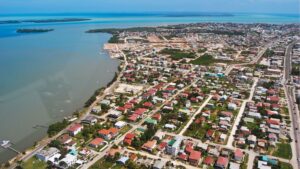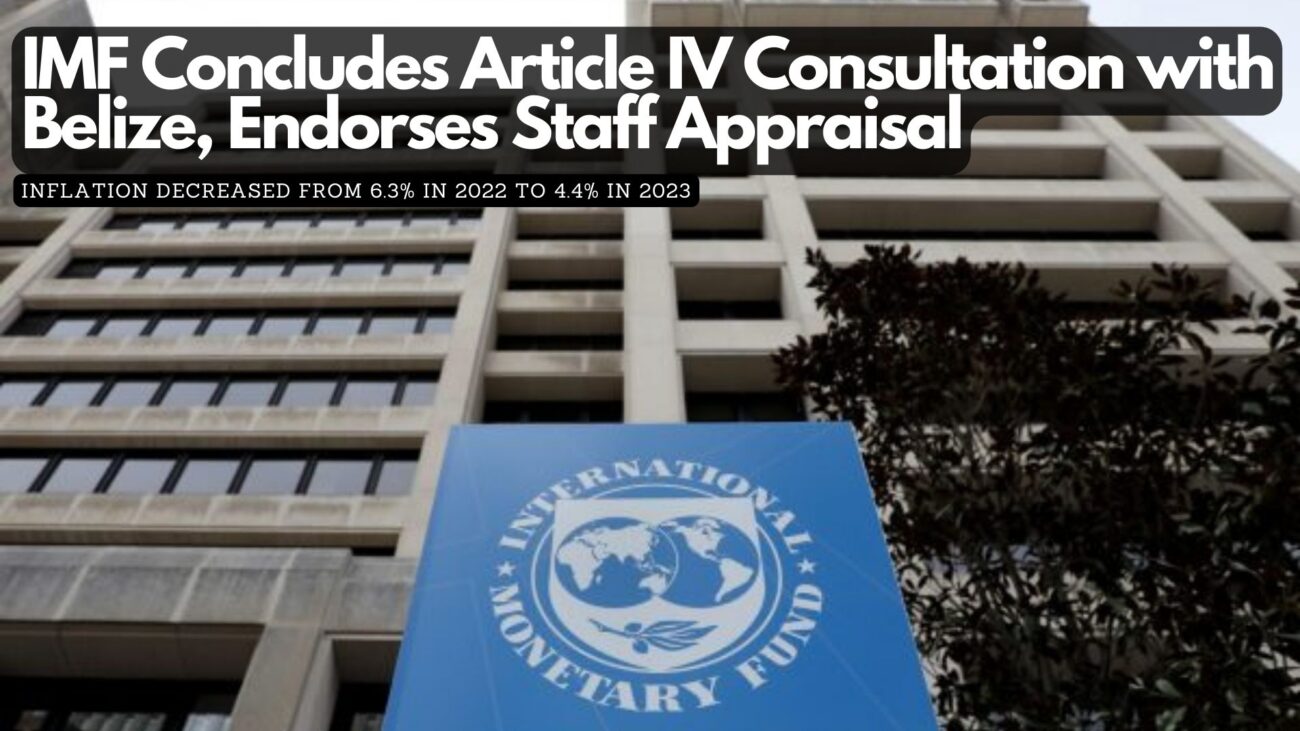IMF Concludes Article IV Consultation with Belize, Endorses Staff Appraisal
The Executive Board of the International Monetary Fund (IMF) has concluded the Article IV consultation with Belize, endorsing the staff appraisal without a formal meeting.
Economic Performance in 2023:
Belize experienced moderated economic growth and inflation in 2023. Real GDP growth slowed from 8.7% in 2022 to 4.7% in 2023, driven by sectors such as tourism, construction, retail, wholesale trade, transport, and business process outsourcing. Inflation decreased from 6.3% in 2022 to 4.4% in 2023, largely due to lower transport and utility prices, despite rising food costs. The fiscal position remained robust, but debt dynamics became more challenging. The overall fiscal deficit widened, influenced by a reduced primary surplus and increased interest payments on external debt. Public debt slightly declined from 67% of GDP in 2022 to 66% in 2023 following the acquisition of the Port of Belize and the settlement of foreign investor litigations.

Future Economic Outlook:
Real GDP growth and inflation are expected to further moderate. Growth is projected at 3.4% in 2024 and 2.5% from 2025 onwards, with inflation anticipated to drop to 1.3% in the medium term, aligning with declining commodity prices and global inflation. The primary balance is expected to remain at 1.2% of GDP from FY2024, with public debt projected to decline slowly but remain above 50% of GDP through 2034 due to slower nominal GDP growth and high global interest rates. Key risks include higher global food and fuel prices, prolonged high global interest rates, and climate-related disasters.
Executive Board Assessment:
Belize’s key policy priorities involve reducing public debt to 50% of GDP by FY2030 by raising the primary fiscal balance to 2.0% of GDP from FY2025 onwards. This entails increasing priority spending on infrastructure, targeted social programs, and crime prevention, financed through additional revenues and expenditure reprioritization. Structural reforms aimed at boosting inclusive and resilient growth and vigilant financial stability measures are also crucial.
Achieving a 50% public debt-to-GDP ratio by 2030 would ensure debt sustainability and fiscal buffers. This target, aligned with investment-grade emerging market economies, would likely maintain debt below the 70% GDP target in the 2021 Medium-term Recovery Plan. Attaining this goal requires fiscal consolidation to raise the primary balance to 2% of GDP from FY2025, supported by a medium-term fiscal strategy and a potential Fiscal Responsibility Law with robust fiscal rules.

Revenue and expenditure measures can enhance the primary surplus and fund essential spending. Broadening the GST base, increasing excise taxes, rebalancing manufacturing taxes, and improving revenue administration can boost revenue by 2.2% of GDP. Reforming the PPPO could reduce government spending by 0.1% of GDP. Savings would support a higher primary surplus (0.8% of GDP) and expand priority spending (1.5% of GDP), fostering medium-term growth and resilience. Priority spending includes infrastructure improvements, renewable energy investments, childcare and training subsidies for vulnerable women, targeted transfers for food security, and climate-resilient infrastructure.
Improving the business climate and developing a disaster resilience strategy (DRS) are essential for medium-term growth. Enhancing access to affordable credit for SMEs, digitalizing land and business registries, and improving government services are key priorities. A comprehensive DRS would support funding for climate mitigation and adaptation, reducing output volatility.
Increasing international reserves would strengthen the currency peg. Belize’s external position is strong, yet international reserves remain below the ARA metric. Fiscal consolidation and structural reforms to increase reserves would fortify the currency peg, especially with rising external financing needs projected when blue loan repayments begin in 2032.
Limiting central bank financing of the government, preserving financial stability, and strengthening the AML/CFT framework are critical. Reducing central bank financing gradually would decrease excess liquidity and support local capital market development. The central bank should monitor financial stability risks, enhance supervision of vulnerable institutions, and enforce the AML/CFT framework, particularly in the IFS.







Facebook Comments